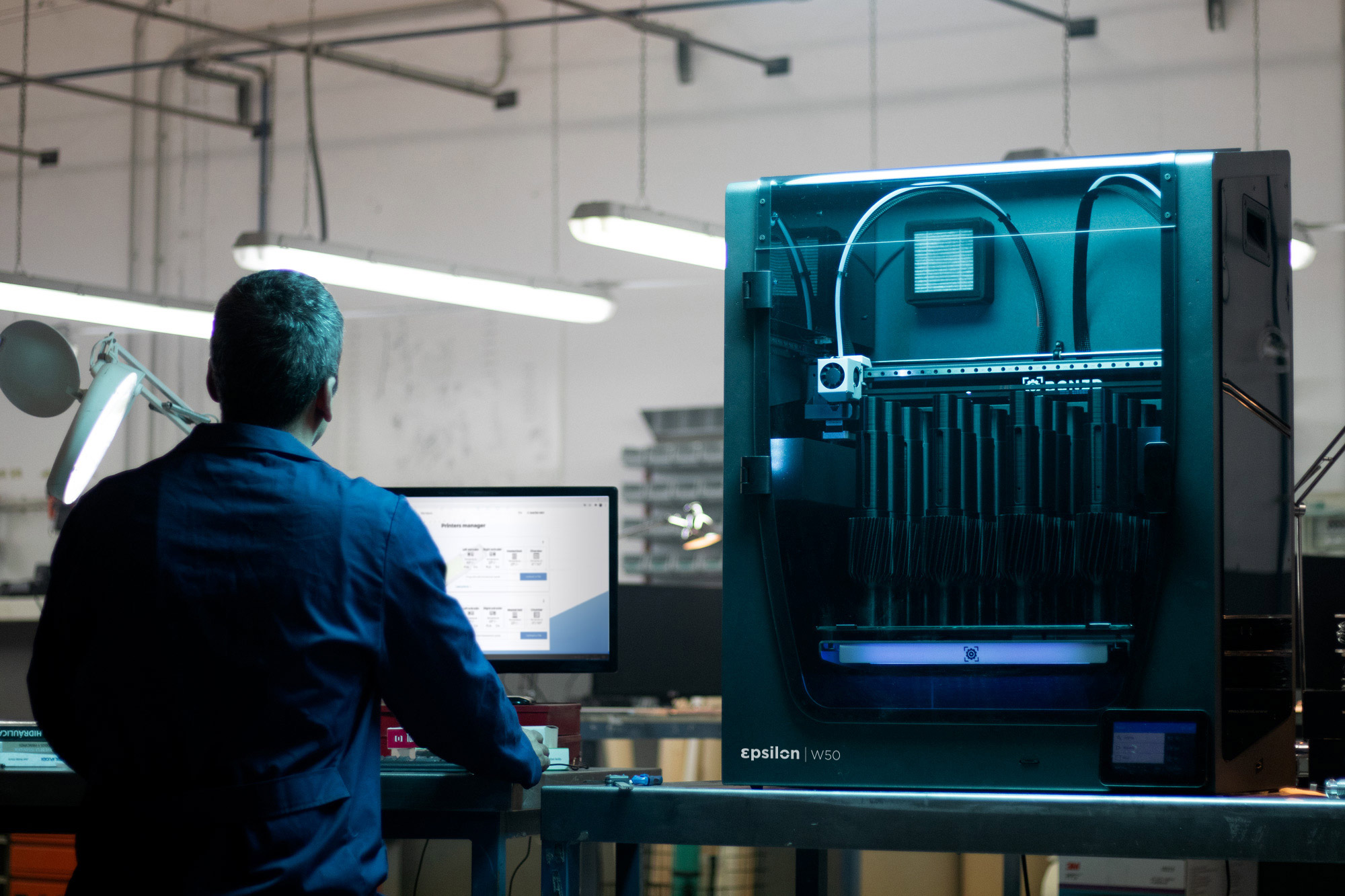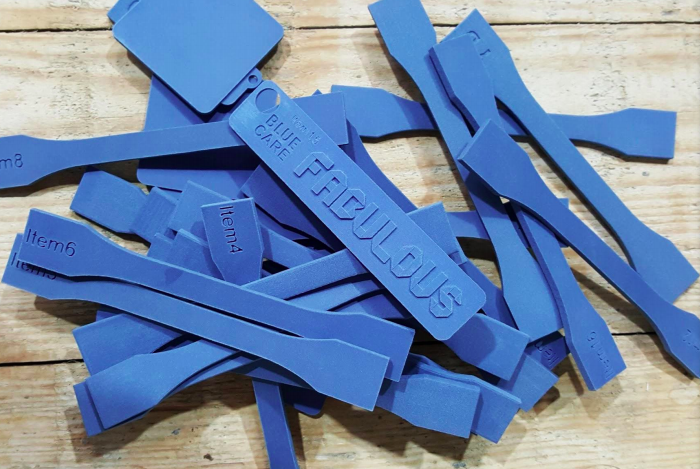Forward AM, the additive manufacturing arm of BASF, has received TÜV Rheinland certification for a 3D printing process that manufactures end parts for food contact applications.
Certification of the manufacturing process was initiated by a joint project with Replique, a venture born out of BASF’s Chemovator business incubator, and German home appliance manufacturer Miele.
Having considered the entire manufacturing process from material production through to end parts and packaging, The TÜV certification will enable Forward AM to produce 3D printed parts for safe use within the food industry.
“With TÜV Rheinland certification we are closing a critical gap in the additive manufacturing of parts intended for food contact,” said Christian Reinhardt, Business Development Manager at BASF 3D Printing Solutions. “This holistic solution means we are now able to offer our customers the production of officially safe food-contact parts.”

Certifying 3D printing for food contact
The safety of 3D printed food contact materials needs to be strictly evaluated to ensure that chemicals do not migrate from the materials into food. Such materials must be manufactured in full compliance with EU regulations, including Good Manufacturing Practice (GMP), to ensure that any potential transfer does not lead to food safety concerns, impact food composition, or negatively impact its taste and texture.
To meet these standards, Forward AM integrated special processes and measurements into its filament production process to avoid any risk of cross-contamination. Food contact parts printed in Forward AM’s Ultrafuse PET filament were tested in line with LFGB and Regulation (EC) No. 1935/2004 and met the food contact requirements.
“The TÜV certification proves that 3D printing has matured as a manufacturing technology and is now able to produce highest-standard end parts in a fully controlled and audited process,” said Reinhardt.
“What’s more, this certification confirms Forward AM’s aspiration to become the food industry’s leading consultancy and supplier for the manufacture of 3D printed food-contact parts.”
Project 3D4U
The TÜV certification was initiated by a joint project with Replique and its customer, Miele, who have been working together to produce and ship 3D printed accessories via Miele’s online shop since June. The partners implemented a GMP for the 3D printing of polymer parts for food contact applications, beginning with a coffee clip, borehole cleaner, and a valuable separator for vacuum cleaner attachments.
Through Project 3D4U, Replique’s 3D printing platform has been integrated into Miele’s online shop to fulfill orders for 3D printed parts, which are then manufactured using desktop 3D printers from Barcelona-based BCN3D and Forward AM’s compliant filaments.
The 3D printed food contact-safe products are 3D printed in accordance with GMP TÜV-certified quality, confirming the strict product quality control and process reliability of the partners’ additive manufacturing process for applications in the food sector.

Advances in 3D printing for food contact
3D printing firms have made increasing progress in the certification of processes and materials for producing parts specifically for use within food production facilities.
For instance, alongside the Danish Technological Institute, Additive Manufacturing Technologies (AMT) has worked on post-processing 3D printed parts that meet EU food safety standards, while a ‘Clean Manufacturing Facility’ set up by equipment supplier ERIKS is leveraging Ultimaker S5 Pro 3D printers to produce various food-safe parts.
Elsewhere, polymer 3D printing materials from Dutch 3D printing firm Oceanz have been awarded European Food Grade certification, and 3D printer manufacturer Markforged has revealed plans to set up an Australia-based service dedicated to producing food-contact components.
Most recently, Chinese 3D printer manufacturer Farsoon Technologies has strengthened its partnership with French materials producer FABULOUS to develop 3D printing materials for use with powder bed systems that are suitable for food contact and drinking water applications.
Subscribe to the 3D Printing Industry newsletter for the latest news in additive manufacturing. You can also stay connected by following us on Twitter and liking us on Facebook.
Looking for a career in additive manufacturing? Visit 3D Printing Jobs for a selection of roles in the industry.
Subscribe to our YouTube channel for the latest 3D printing video shorts, reviews, and webinar replays.
Featured image shows Forward AM has received TÜV Rheinland certification for 3D printing food contact parts. Photo via Forward AM.


